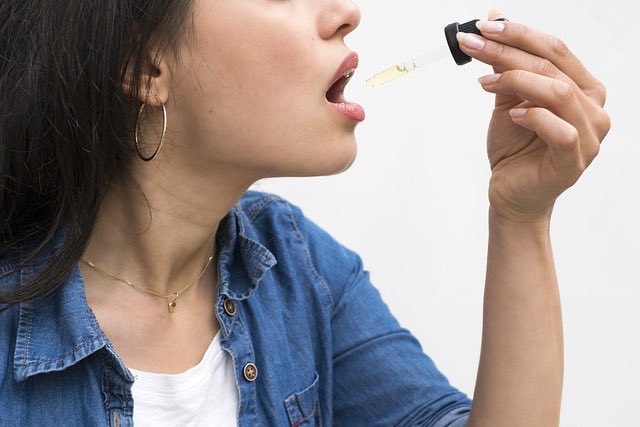Cannabidiol (CBD) is a chemical substance in the Cannabis plant, also known as marijuana or hemp. CBD is non-habit forming and non-psychoactive. Thus, making it usable for people to consume it to improve overall health.
CBD helps in the treatment of seizure disorder or epilepsy. It is also useful for anxiety, pain, muscle disorder, and many other conditions. However, these uses are not scientifically proven.
How Does CBD Work in the System?
Understanding how CBD works involve examining the relationship between the receptors and endocannabinoids.
CBD affects the user’s endocannabinoid system. The endocannabinoid system maintains the internal environment of the body and keeps the changes under control. It also helps adapt to external stressors.
A human body naturally produces endocannabinoids inside the body. However, plants produce phytocannabinoids, such as CBD. They act as supplements that can fill the body’s needs or give a boost.
There are generally two types of receptors, CB1 and CB2. CB1 receptors are the ones that are present in the central nervous system. CB1 helps the human body and is responsible for coordination, movement, memory, pain, appetite, mood, and other functions. The CB2 receptors are present in the peripheral nervous system that causes pain and inflammation.
Endocannabinoids bind with receptors after enzymes break down the cannabinoids. According to researchers, CBD does not directly attach itself to the receptor but influences it in some way. CBD activates these receptors that result in many of the health benefits.

CBD can also help activate non-cannabinoid receptors. As per Teaera Roland of Lotus Health, CBD influences the 5ht serotonin receptor, which can treat psychotic disorders. It can also activate the TRPV1 receptor, which is responsible for pain and inflammation.
How Long Does it Stay in Your System?
CBD usually stays in your system for 2 to 5 days. However, the range doesn’t apply to everyone. It can stay for weeks in the body for some people.
Some factors that influence the time for which CBD stays in your system. If one uses higher doses of CBD, then it stays for a longer duration in your body. Your body mass index, metabolism, and water content also influences the time for which it stays in your system. If you consume CBD on an empty stomach, then it gets eliminated faster than if you take it on a full stomach.
How you take CBD also influences the time for which it stays in the system.
If you inhale CBD, it enters the lungs and leaves the body quickly. You can feel the effects of CBD in 15 minutes of vaping it. Lotions and creams are also slow to get into and out of the body. However, CBD in the form of oil is absorbed into the bloodstream faster and linger longer. It can stay for one or two hours when it is edible.
As per a study, some patients consumed around 700mg of CBD per day for six consecutive weeks. 700 mg constitutes a very high dose of CBD. The study revealed that CBD was undetectable one week after discontinuing consumption.
It is still unclear how long CBD can stay in your system. It depends on the body of the person and varies based on the consumption method. However, the research is ongoing to understand and know the duration for which CBD stays in the body.

The Benefits And Effects of CBD
In recent times, CBD has become increasingly popular. Nowadays, people are turning to it for a wide range of issues. Though they are not able to heal all the tissues, they do regulate neurotransmitter function, metabolism, inflammation, and mitochondrial function.
- CBD helps to relax your mind and reduce stress. It also boosts serotonin levels, which helps in getting proper sleep. A report in 2018 studied 409 people who were suffering from insomnia. They reported the effects of CBD on their quality of sleep.
- CBD is now known for its excellent anti-inflammatory properties. CBD products can help combat and ease inflammation and pain.
- CBD, if taken in smaller doses throughout the day, can help in increasing the energy levels.
- The non-psychoactive properties of CBD make it useful for therapeutic use.
- One of the studies shows that CBD helps the reduction in heart conditions, such as heart attacks and strokes.
- It has been proved that CBD has significant effects on people with broken bones. It can be helpful to heal the bones faster and strengthen them.
- Cancer patients feel nausea and may end up vomiting after going through chemotherapy. CBD can help reduce the symptoms of chemotherapy.
- Inhaling cannabidiol for one week can lead to reductions in the number of cigarettes smoked by about 40% compared to baseline.
WHO and other reputable health organizations have regarded CBD as safe. However, enough research is still not done to find out if CBD products are unsafe for anyone. Undoubtedly, CBD has many benefits, but it also has side effects and potential risks. Some of them are listed below.
- Causing liver injury.
- CBD interacts with other medications that may cause severe side effects.
- When CBD is taken with alcohol or medicines to treat anxiety, stress, panic, or sleep disorders, it increases the risk of sedation and drowsiness.
- Changing alertness
- Decreasing appetite
- Causing diarrhea
- Digestive issues
- CBD may change the mood, such as irritability and agitation.
- Dry mouth effect
- In high doses, CBD is observed to lower the blood pressure
- CBD is not risk-free when applied to the skin. Sometimes an allergic reaction can take place.
- The human body uses enzymes to process drugs such as warfarin, anti-epileptics, HIV antivirals, and others. As per the research, CBD can reduce those enzymes.

Final Thoughts
Cannabidiol affects your brain. However, the cause behind these effects is not clear. CBD helps prevent the chances of a breakdown of a chemical in the brain that affects pain, mood, and mental function. Cannabidiol also increases its levels in the blood and thus reduces psychotic symptoms associated with conditions such as schizophrenia. It also blocks some of the psychoactive effects of tetrahydrocannabinol (THC).

Please click below to subscribe and to follow us on social media:
Click here to follow us via E-mail!
Click here to follow us on Facebook!
Click here to follow us on YouTube!
Click here to follow us on Instagram!
Click here to follow us on Twitter!
Click here to join our Facebook group!


 15 Best Inspirational Movies That Teach to Never Give Up
15 Best Inspirational Movies That Teach to Never Give Up
 50+ Best Self-Help Books That Will Change Your Life Forever
50+ Best Self-Help Books That Will Change Your Life Forever
 Short Motivational Stories of Failure and Success That You Must Know
Short Motivational Stories of Failure and Success That You Must Know
 10 Examples Where the Power of Positive Thinking Kicks Ass!
10 Examples Where the Power of Positive Thinking Kicks Ass!
 What to Do When Someone Is Better Than You? – Dealing with Jealousy
What to Do When Someone Is Better Than You? – Dealing with Jealousy

Leave a Reply